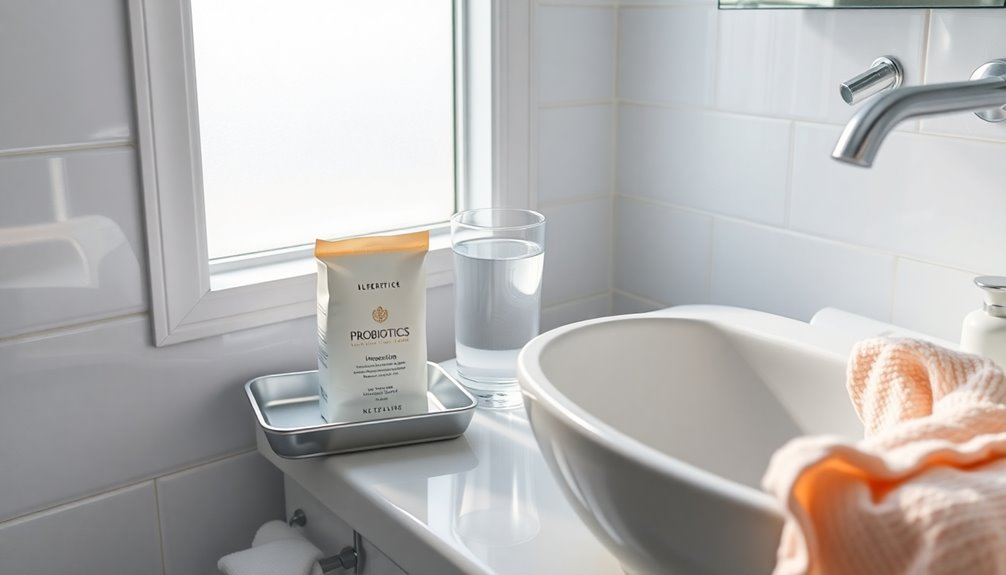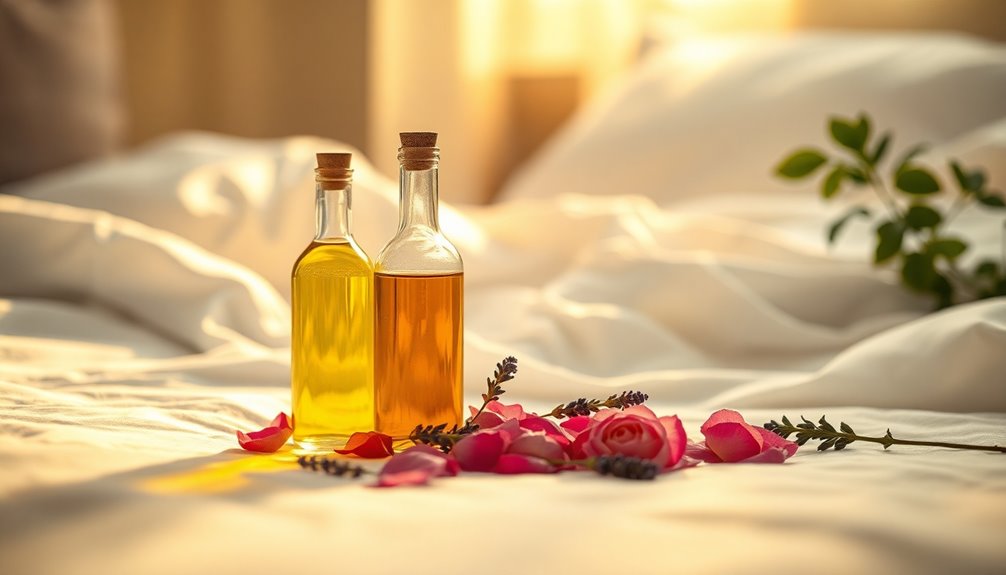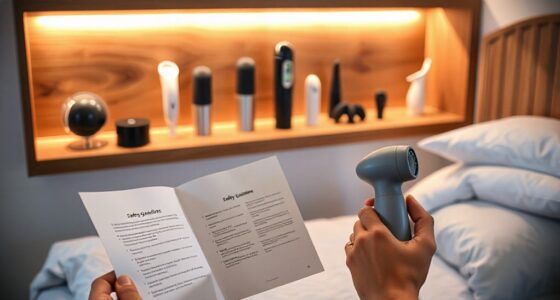To prevent yeast infections after sex, focus on good hygiene and smart lifestyle choices. Always rinse your vulva with warm water and mild soap after intercourse to keep bacteria in check. Wear breathable cotton underwear to reduce moisture and irritation. Avoid tight clothing and douching, and change out of wet clothes quickly. Maintaining a low-sugar diet can also help, as it limits food for yeast. Incorporating probiotics into your meals, like yogurt, supports healthy vaginal flora. If you're curious about more prevention strategies and symptoms to watch, there's plenty more to uncover.
Key Takeaways
- Practice good hygiene by rinsing the vulva with warm water and mild soap after sex to remove any irritants.
- Wear breathable clothing, like cotton underwear, to reduce moisture and irritation that can lead to yeast growth.
- Avoid douching and promptly change out of wet clothing to prevent creating a favorable environment for yeast.
- Limit antibiotic use to necessary situations, as they can disrupt the natural balance of vaginal flora.
- Incorporate probiotic-rich foods, such as yogurt, into your diet to help maintain healthy vaginal flora.
Understanding Yeast Infections
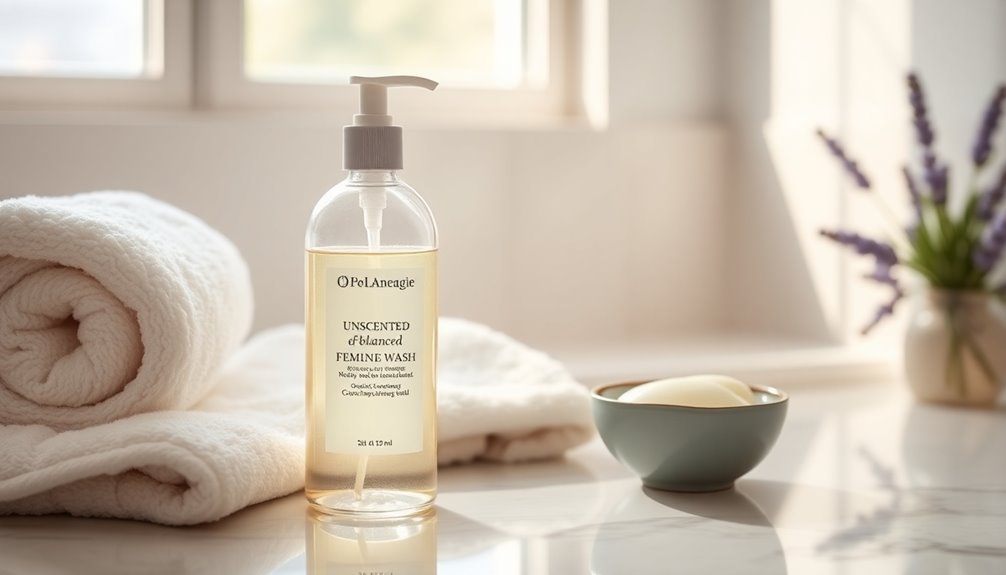
Understanding yeast infections is essential for maintaining your vaginal health, especially after sex. Yeast infections occur due to an overgrowth of the Candida fungus, which naturally exists in your vagina.
When the balance of your vaginal flora is disrupted, you may experience symptoms like itching, burning, and unusual discharge. While sexual activity doesn't directly cause yeast infections, it can introduce bacteria that promote this imbalance.
To prevent infections, maintain good hygiene, such as changing out of wet clothing quickly and avoiding douching. Consider incorporating probiotics into your diet, as they support a healthy balance of vaginal bacteria.
Be cautious with antibiotics too, since they can disrupt this balance and encourage yeast overgrowth.
Causes of Yeast Infections
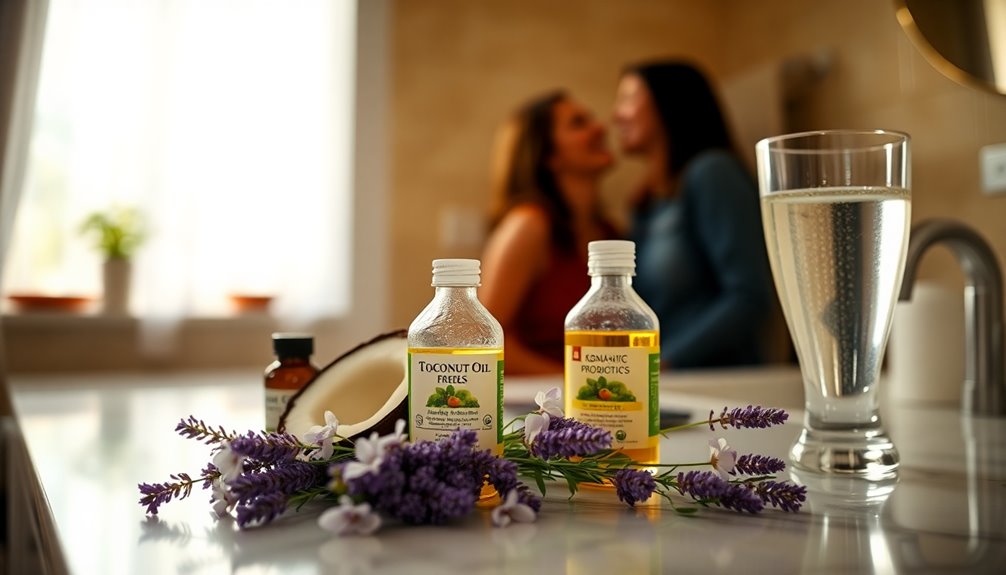
Yeast infections can arise when the delicate balance of bacteria in your vagina gets disrupted. The overgrowth of the Candida fungus is often the main culprit.
Factors like antibiotics can decrease beneficial bacteria, allowing yeast to thrive. Hormonal changes, particularly during menstruation or pregnancy, can alter vaginal pH and flora, increasing your risk.
Additionally, high moisture levels from penetrative sexual activity create a perfect environment for yeast growth. External irritants, such as scented products and douching, can also disturb your vaginal ecosystem.
Impact of Sexual Activity
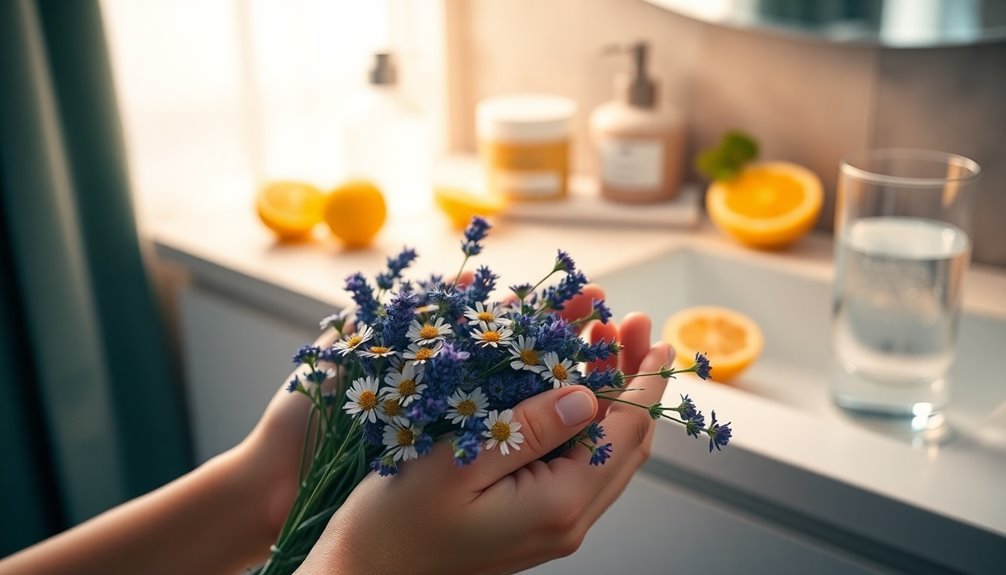
When you engage in sexual activity, the natural balance of vaginal flora can be disrupted, increasing the risk of yeast infections.
High moisture levels from penetrative sex create an environment that favors yeast overgrowth, especially if you're wearing tight or synthetic clothing afterward.
Additionally, new bacteria introduced during sexual activity can further upset this delicate balance.
It's essential to recognize that about 15% of individuals with penises may develop a penile yeast infection after exposure to an infected partner, highlighting the need for open communication regarding infections.
Practicing good hygiene, such as urinating and properly cleaning the genital area post-coitus, can greatly reduce the risk of yeast infections and help maintain a healthy vaginal flora.
Hygiene Practices to Adopt
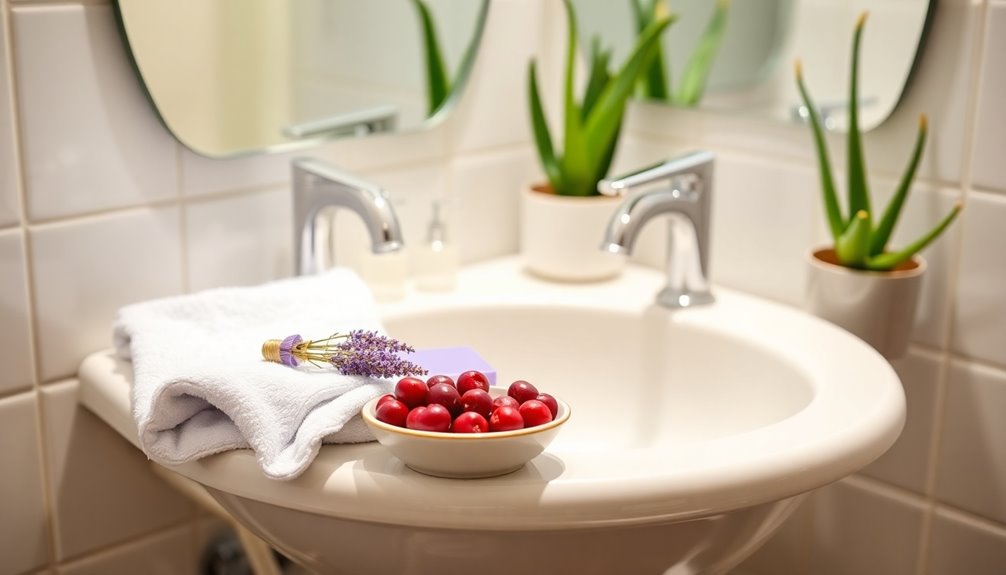
After sex, adopting a solid post-sex cleansing routine is essential for your hygiene.
Opt for breathable clothing choices to keep moisture at bay and steer clear of irritating products that can disrupt your natural balance.
These simple practices can greatly reduce your risk of yeast infections.
Post-Sex Cleansing Routine
To maintain ideal vaginal health, it's essential to adopt a post-sex cleansing routine.
Start by gently rinsing your vulva with warm water and a mild, unscented soap to remove any irritants or bacteria introduced during intercourse.
Afterward, make sure to urinate; this helps flush out potential bacteria and can prevent yeast infections.
Avoid douching, as it disrupts your natural vaginal flora, leaving you more vulnerable to infections.
Additionally, change out of wet or sweaty clothing promptly to minimize moisture, which can promote yeast growth.
Finally, consider wearing breathable cotton underwear and avoid tight-fitting clothing for a few hours post-sex to enhance air circulation and reduce moisture buildup.
Breathable Clothing Choices
Choosing breathable clothing is essential for maintaining vaginal health, especially after sex. Wearing breathable cotton underwear allows for better air circulation and moisture control, reducing the likelihood of yeast infections. Avoid tight-fitting clothing, particularly synthetic fabrics, as they create a warm, moist environment that promotes yeast growth.
| Clothing Type | Benefits |
|---|---|
| Breathable Cotton | Enhances moisture control and comfort |
| Loose-Fitting Garments | Reduces irritation and allows air flow |
| Promptly Change Wet | Minimizes moisture accumulation after sex |
Opt for loose-fitting garments to keep the vaginal area dry and comfortable. Remember to change out of wet clothing quickly to help prevent yeast infections and maintain proper hygiene.
Avoiding Irritating Products
Wearing breathable clothing is just one part of maintaining vaginal health; you also need to be mindful of the products you use.
Avoid irritating products like scented tampons, pads, and bubble baths, as they can disrupt your vaginal flora and raise the risk of yeast infections. Instead, opt for mild, unscented soap when washing your vulva.
Douching is also a no-go since it can eliminate beneficial bacteria essential for balance. After sexual activity, be sure to change clothing promptly if you're wet or sweaty, as prolonged moisture creates an inviting environment for yeast.
Dietary Considerations
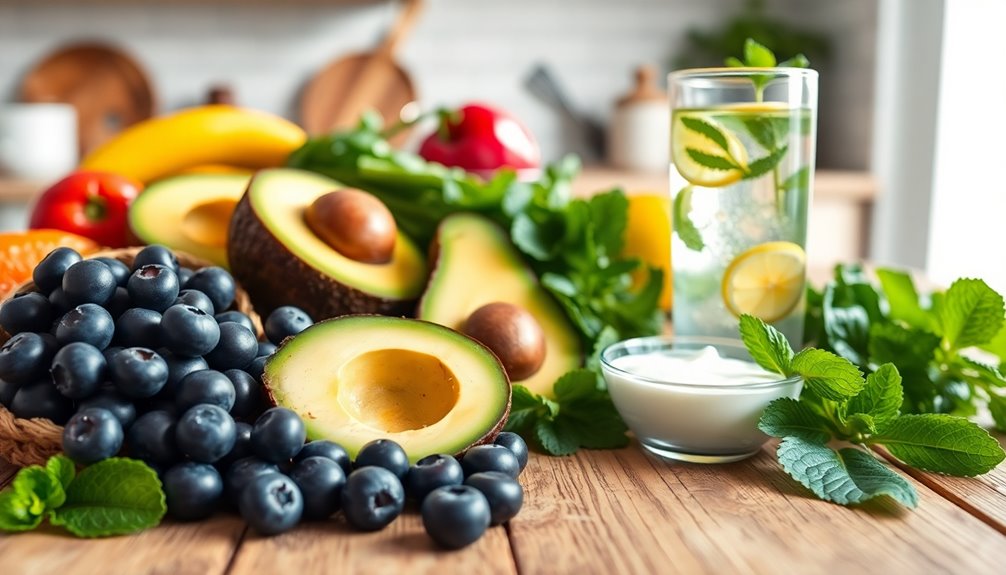
When it comes to preventing yeast infections after sex, your diet plays an essential role.
Focusing on a low-sugar diet and incorporating probiotic-rich foods can help maintain a healthy balance in your body.
Low-Sugar Diet
A low-sugar diet plays an essential role in preventing yeast infections after sex, as it helps maintain a balanced vaginal flora.
By reducing sugar intake, you limit the glucose available for Candida and other yeast species to thrive.
Here are some tips to follow:
- Avoid high sugar and refined carbohydrates – These can promote yeast overgrowth.
- Incorporate whole foods – Focus on vegetables, whole grains, and lean proteins to support a healthy immune system.
- Stay hydrated – Proper hydration aids in digestive health, promoting overall balance.
- Monitor your diet – Keep track of your high sugar intake to lower infection risk.
Probiotic-Rich Foods
Incorporating probiotic-rich foods into your diet can greatly enhance your vaginal health and help prevent yeast infections after sex. Foods like yogurt and kefir contain beneficial microorganisms that restore a healthy balance of vaginal flora.
Fermented foods such as sauerkraut and kimchi also support gut and vaginal health, promoting the growth of these microorganisms. Regularly consuming probiotics can bolster your immune system, helping to prevent conditions that lead to yeast overgrowth, particularly antibiotic-related imbalances.
Pairing these foods with a diet low in refined sugars can further discourage Candida, the fungus responsible for yeast infections.
Don't forget to include fiber-rich fruits, vegetables, and whole grains, which also help probiotics thrive in your gut for peak health.
Role of Probiotics

Probiotics play an essential role in maintaining vaginal health, especially after sexual activity. They help support a balanced vaginal flora, reducing the risk of yeast infections caused by Candida.
Here's how you can incorporate probiotics into your routine:
- Choose yogurt: Opt for plain, unsweetened yogurt with live cultures to boost your microbiome.
- Sip on kefir: This fermented drink is rich in beneficial bacteria, promoting vaginal health.
- Consider supplements: Probiotic capsules can help restore balance, especially after antibiotics.
- Track your intake: Regularly incorporating probiotics can prevent recurrent infections and support overall vaginal health.
When to Seek Medical Advice
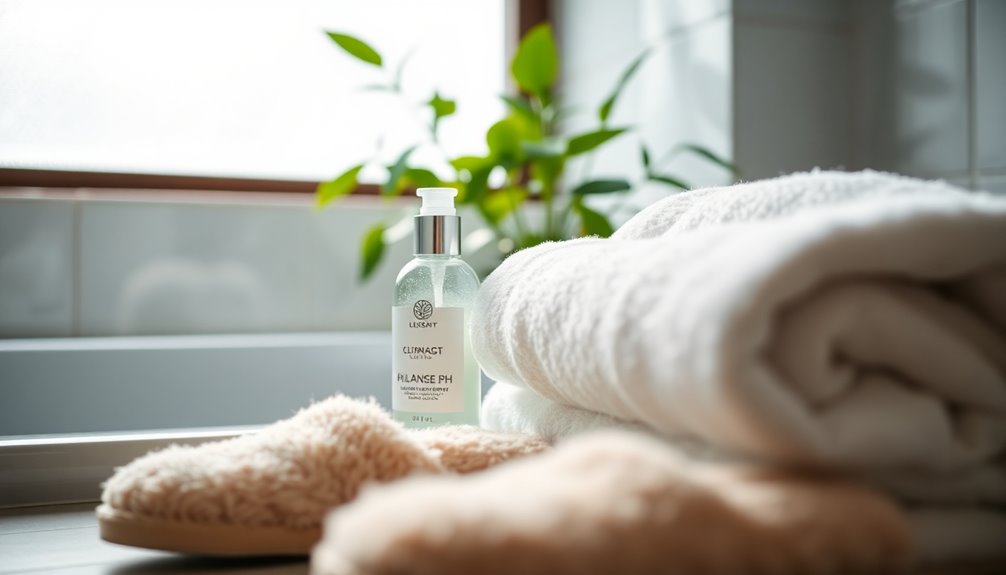
Wondering when it's time to seek medical advice for potential yeast infections? If you experience persistent symptoms like intense itching, burning during urination, or unusual discharge that doesn't improve with over-the-counter treatments, it's time to consult a healthcare provider. Recurrent yeast infections, defined as four or more episodes a year, may signal underlying issues. Significant redness, swelling, or pain in the vulva also calls for prompt evaluation. Additionally, unusual symptoms like bleeding, foul-smelling discharge, or fever should never be ignored. Pregnant individuals should consult their healthcare provider to guarantee proper treatment and avoid complications.
| Symptoms | When to Seek Advice | Possible Complications |
|---|---|---|
| Persistent symptoms | After 2 weeks without improvement | Underlying health issues |
| Recurrent infections | 4 or more episodes a year | Chronic infections |
| Unusual discharge | Anytime you notice strange signs | Severe infections |
Frequently Asked Questions
Is It Normal to Keep Getting Yeast Infections After Sex?
It's not uncommon to experience recurrent yeast infections after sex, but it shouldn't be considered normal.
This might signal an imbalance in your vaginal flora or other underlying issues. Factors like hormonal changes, antibiotic use, or irritants during intercourse can contribute to this problem.
If you're finding yourself dealing with repeated infections, it's important to consult a healthcare provider to explore potential causes and effective solutions tailored for you.
Can Showering After Sex Prevent Yeast Infection?
Imagine a rejuvenating waterfall, cleansing away sweat and irritants. Showering after sex can help maintain hygiene, potentially lowering the risk of yeast infections.
Just remember, using mild, unscented soap is essential—harsh soaps can disrupt your natural balance. Also, drying off thoroughly is vital, as moisture invites yeast to thrive.
While showering's beneficial, it won't guarantee prevention, and other factors like diet and hormones play a role too.
How Do I Avoid Giving My Girlfriend Yeast Infections?
To avoid giving your girlfriend yeast infections, focus on maintaining good hygiene.
Shower before and after intimacy to eliminate bacteria. Use condoms or dental dams to minimize the risk of transferring yeast.
Avoid douching and scented products, as they can disrupt her natural balance. Encourage her to wear breathable cotton underwear and steer clear of tight clothing.
Finally, always clean sex toys thoroughly before and after use to prevent any transfer of yeast or bacteria.
Why Does My Girlfriend Keep Getting a Yeast Infection?
Your girlfriend keeps getting yeast infections due to an imbalance in her vaginal flora.
Factors like antibiotic use, hormonal changes, or a high-sugar diet can trigger these infections.
Additionally, conditions like diabetes or a weakened immune system may increase her susceptibility.
Tight clothing can create a warm, moist environment that promotes yeast growth.
It's essential for her to consult a healthcare provider to identify specific triggers and find effective ways to manage this issue.
Conclusion
To keep yeast infections at bay after sex, prioritize good hygiene, consider your diet, and incorporate probiotics into your routine. Think of your body as a delicate garden—nurture it with the right practices and watch it flourish. By taking these simple steps, you can help guarantee a healthier experience and maintain your comfort. If symptoms arise, don't hesitate to consult a healthcare professional. Your well-being is worth the attention!

